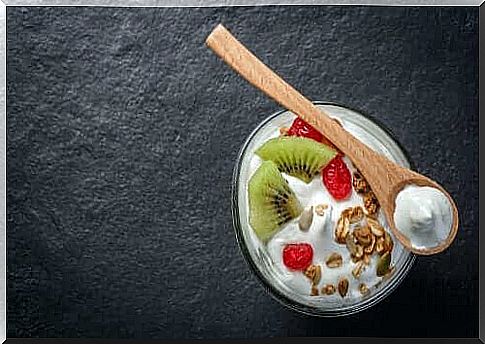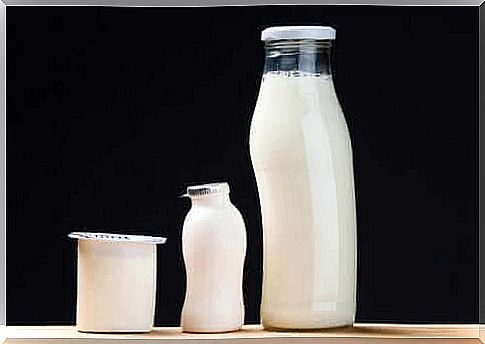Functional Foods For Children

Functional foods or value-added foods, after the English functional foods , are foods that, regardless of nutritional value, have a specifically beneficial effect on health, either by improving it or by reducing the risk of disease. Below you can discover which functional foods are available that are suitable for children, as well as their effects.
Functional foods for children
These foods can be:
- Completely natural.
- A food to which a component is added or removed by technology or biotechnology.
- Where the character of one or more components has changed.
- When the bioavailability of one or more of the components has been modified.
- All conceivable combinations of the above possibilities.
Probiotics and prebiotics belong to this group. They are the most common when it comes to functional foods for children. Probiotics and prebiotics modify the intestinal flora to have beneficial effects in the baby.
There is also a combination of pro- and prebiotics, such as synbiotics. They stimulate the selective growth of a limited number of bacteria in the colon.

Probiotics
This group includes living microorganisms (bacteria and yeast) that have a positive effect on health. They are found in foods such as yogurt, other acidified dairy products or even fermented meat products.
The most commonly used microorganisms are lactic acid bacteria ( Lactobacillus, Streptococcus and Bifidobacterium ). They have a beneficial effect because they:
- Provides a more balanced colon microbiota and prevents rotavirus-induced diarrhea in infants.
- Compete with pathogenic microorganisms to attach to their receptors and binding sites.
- Produces cytokines (proteins that can coordinate the immune system’s response).
- Increases the secretory IgA response.
Nowadays, there is a great deal of interest in showing a relationship between probiotics and the following:
- Prevention and treatment of atopic eczema.
- Treatment of inflammatory bowel disease.
- Prevention of food allergies.
Yoghurt
Yogurt is an excellent way to increase the intake of calcium and other nutrients, especially in young children and children who do not get enough milk or breast milk substitutes.
It is a kind of sour milk, which has been soured and coagulated by L. bulgaricus and Streptococcus thermophilus . Adding Lactobacillus casei or other lactobacilli to yogurt seems to increase the proportion of lactobacillus in the stool, which indicates that it may have beneficial effects.
Breast milk substitute supplemented with probiotics
There are different types of infant formula on the market that can be classified according to whether they contain only prebiotics, prebiotics and probiotics or only probiotics.
The Declaration of the European Society for Pediatric Gastroenterology Hepatology and Nutrition (ESPGHAN) approves the addition of probiotics to substitutes for slightly older infants, but not to the substitutes for newborns as they are bacterial species that differ from the child’s own intestinal flora.

Prebiotics
Another group of functional foods for children are prebiotics. Prebiotics are non-digestible substances that can benefit humans due to selective stimulation of growth or activity of a beneficial group of intestinal bacteria.
Inulin and fruit oligosaccharides (FOS) come industrially from chicory, but are also found in wheat, onions, bananas, garlic and leeks.
Fructooligosaccharides have a role in the development of intestinal bacterial flora. Their fermentation in the colon produces short-chain fatty acids, such as acetic acid, propionic acid and butyric acid:
- They are an energy source for the epithelial cells in the colon.
- They improve the bioavailability of calcium, magnesium, zinc and iron.
Breast milk supplement supplemented with prebiotics
Breast milk is rich in complex galactooligosaccharides (GOS), which act as natural prebiotics and promote the development of bifidobacteria. Therefore, there are breast milk substitutes with prebiotics to mimic the composition of breast milk.
Milk replacement with FOS and GOS promotes the growth of the baby’s own bifidobacteria and lactobacilli, both at the beginning of the colon and down towards the end of it. Because the intestinal flora develops differently in each child, they can be included in all types of infant formula.









